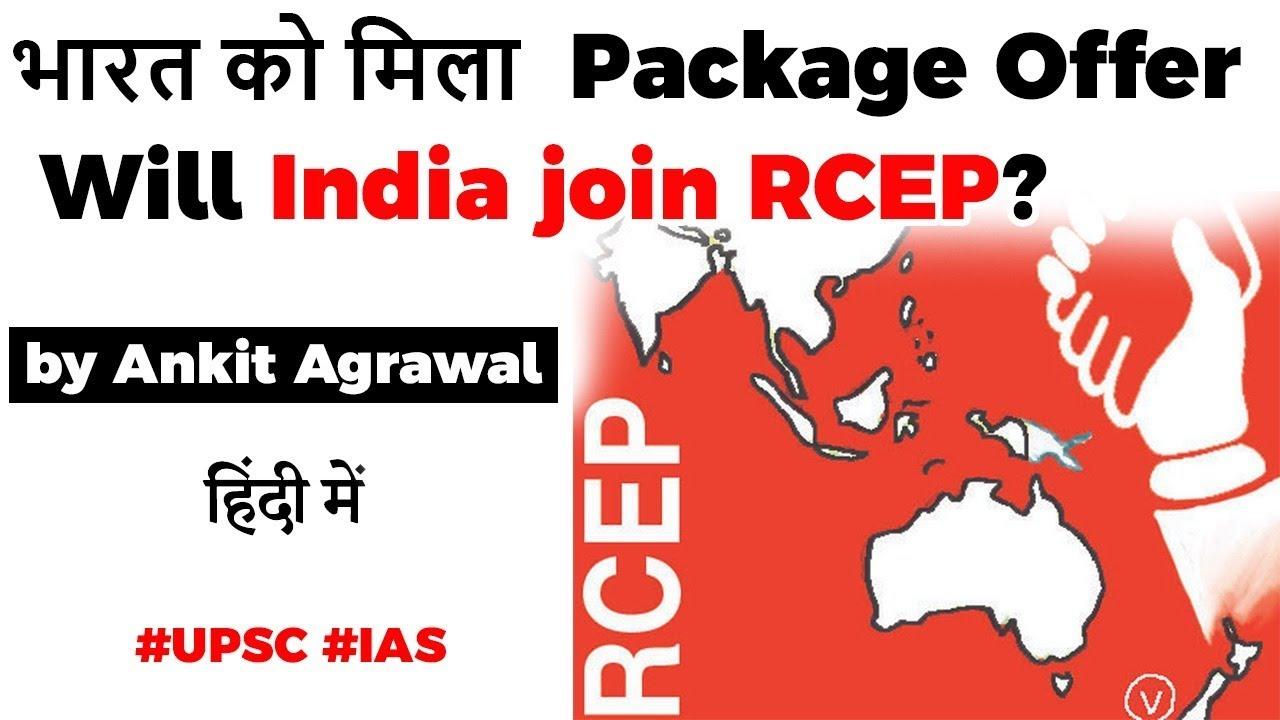Table of Contents
- “When I measure the RCEP Agreement with respect to the interests of all Indians, I do not get a positive answer.
- Therefore, neither the Talisman of Gandhiji nor my own conscience permit me to join RCEP.”
- RCEP is a proposed Free Trade Agreement (FTA)

WHY INDIA DIDN’T JOIN RCEP?
- Inadequate protection against surges in imports.
- Cheaper products from China would “flood” the market. (No anti-dumping duty)
- India has raised import duties on several products between 2014 and 2019.
- Using a base year before 2014 would mean a drastic drop in the import duties on various products.


- Members of the Regional Comprehensive Economic Partnership have offered India a package to return to the negotiating table,
- Taking into account the country’s concerns over tariff base rates and special trade safeguards.
- The RCEP package recognises India’s preference to use more recent most-favoured nation tariff rates than the 2014 base rates.
- Only to limited number of products of concern to India
- The RCEP agreed in principle to incorporate a volume- based safeguard mechanism and Would welcome an indication of the products to which India would seek to apply the special safeguard.
- The RCEP agreed in principle to incorporate a volume- based safeguard mechanism and
- Members of the trade bloc urged India to convey its initial response to the package by May 15 as the Indo-Pacific region braces for a post-Covid-19 economic order.
WHY THIS PACKAGE OFFER?
- Some RCEP members said India has much to contribute, not only in terms of its huge market, but also its participation in regional affairs as a whole.
- Covid-19 demonstrated India’s contribution in terms of active pharmaceutical ingredients and the medical capacity to support others, as well as technical and medical research.
HOW IT WILL BENEFIT INDIA?
- It will give India first mover’s advantage.
- India would give up the chance to frame the grouping’s rules and investment standards if it fails to join the RCEP at this
- India enjoys a comparative advantage in the services sector such as information and communication technology, healthcare, and education services etc.
- Thus, RCEP will create opportunities for Indian companies to access new markets.
THE MAJOR CONCERN IS CHINA
- China is known to have used non-tariff barriers in the past to prevent India from growing its exports to the country.
- Concerns on a “possible circumvention” of rules of origin — the criteria used to determine the national source of a product — were also not addressed.

Q) With which of the following countries, India has a bi-lateral FTA?
- South Korea
- China
- Australia
- New Zealand






















 WhatsApp
WhatsApp